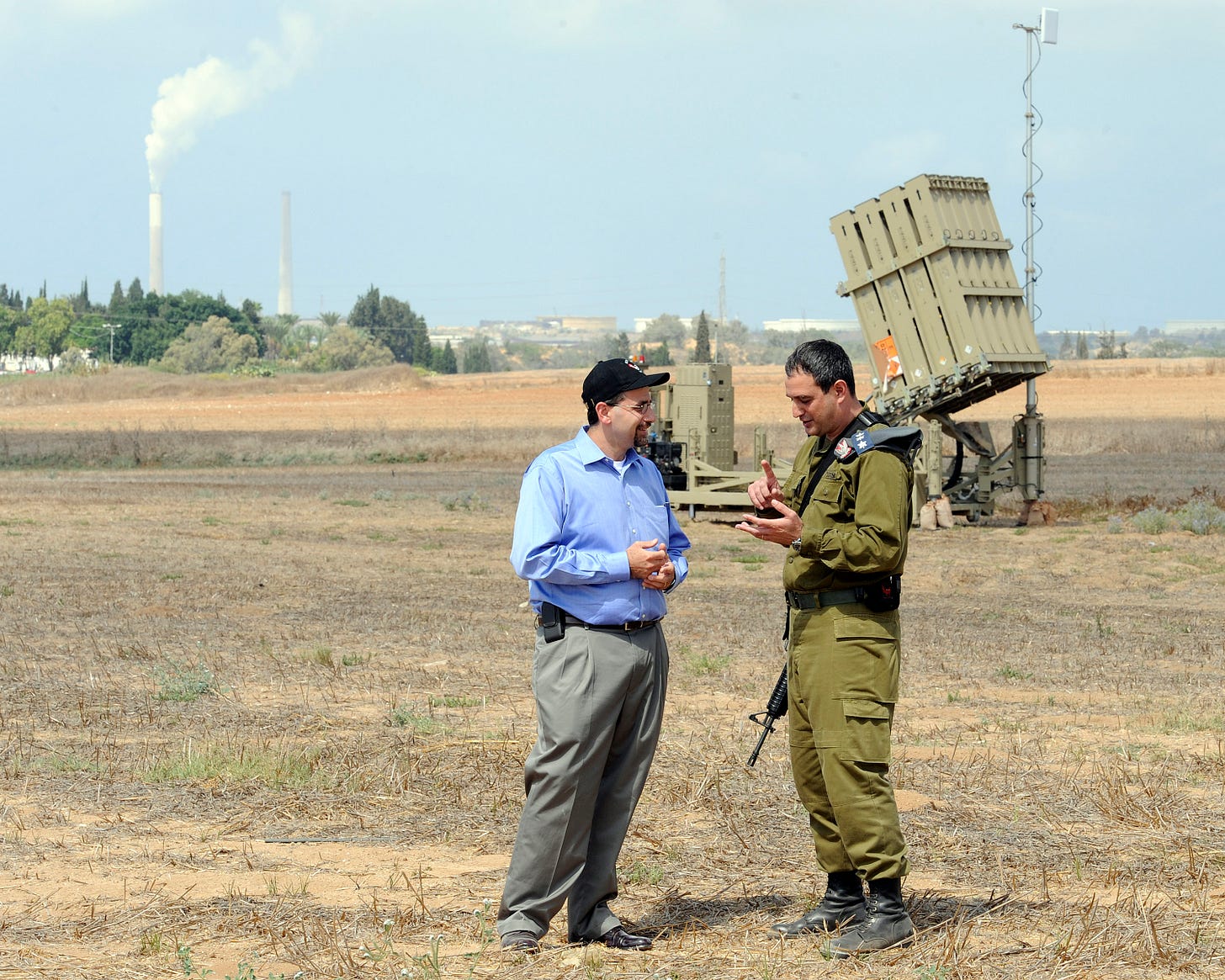When is air defense an offensive weapon?
The Iron Dome is not just a system for defending civilians. America understands this notion when it comes to Iran.

The Iron Dome is back in U.S. domestic news again. Rep. Jamaal Bowman (D—N.Y.) told the Democratic Socialists of America that he would no longer vote to fund the Israeli missile defense system with American taxpayer money. Predictably, that’s led to insinuations and accusations that Bowman “wants Jews to be killed.” After all, the Iron Dome is a system for defending Israeli cities from Palestinian attacks, right?
Of course, the United States doesn’t fund an air defense system for Palestinians or other people under Israeli attack. As the Washington Post and Jewish Currents have pointed out, making one side of a conflict — and only that one side — feel invincible encourages more aggressive behavior from that side.
American politicians understand this principle perfectly well when it comes to other countries. Forget the hypotheticals about a Palestinian dome; we have a real-life example. When Iran was looking to upgrade its own antiaircraft systems, American and Israeli politicians had no problem arguing that air defense is actually cover for military aggression. In fact, they actively threatened Iran with violence over one attempt to build air defenses.
In 2007, the Iranian military signed a deal with Russia for S-300 air defense missiles. The United States lobbied Russia to delay delivery of the weapons. Although there was no possible way Iran could use the S-300 for offensive purposes, Washington was concerned that making Iran less vulnerable would reduce the U.S. military’s ability to deter Iran from building a nuclear weapon.
In 2015, when it looked like Iran was going to reach a deal with international powers to curtail its nuclear program, Russia agreed to move forward with the missile deal. The Obama administration still opposed the deal, but downplayed the danger. Israeli prime minister Benjamin Netanyahu was livid, arguing that “this step will only increase Iran's aggression in the region and will destabilise security in the Middle East.”
Wait, let’s go over that again. Giving a country defensive missiles “will only increase its aggression in the region”? If the logic is true — political scientists call this phenomenon a “security dilemma” — then the same would apply to the Iron Dome. Arguably, the Iron Dome shields Israel from consequences even more than the S-300 shields Iran, since Iran pays for the S-300 with its own money while an outside power constantly resupplies the Iron Dome.
Last year, when Iran considered upgrading from the S-300 to the more advanced S-400 system, U.S. and Israeli officials issued an aggressive anonymous threat. As I wrote:
a group of American and Israeli sources raised the alarm to Bloomberg News about Iran obtaining Russia’s S-400 air defence system. Because the anti-aircraft missiles would “narrow the window for a potential strike in Tehran’s nuclear program”, the news service reported, the prospective sale “would accelerate a decision on a possible attack”.
Those who support the Iron Dome and oppose Iranian air defense would probably take offense at the comparison, on the grounds that Israel is a democratic ally and Iran is a theocratic enemy. But they are already admitting that air defense is not just a matter of protecting the innocent, above and beyond politics. Paying for any weapon system is a political decision that can be debated.


